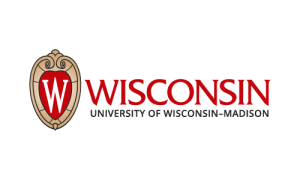University of Wisconsin: Researchers win grant to combat misinformation about COVID and 2020 election
Misinformation on social media has presented significant threats to both public health during the COVID-19 pandemic and democracy throughout the 2020 U.S. presidential election. Now, a team of researchers led by University of Wisconsin School of Journalism and Mass Communication Professor Mike Wagner is launching a new project to combat misinformation online.
“This project will help determine what corrections of misinformation are effective and get that information to professional fact checkers, who can work in real time to correct misinformation circulating on social media,” Wagner says. “This is a real convergence of different disciplines and methods that allows us to find solutions to the problem and share good evidence with fact checkers and the public.”
The project, titled “How Large-Scale Identification and Intervention Can Empower Professional Fact-Checkers to Improve Democracy and Public Health,” is supported by a $750,000 grant from the National Science Foundation’s Convergence Accelerator and is aimed at studying the most effective methods of combating misinformation online.
The researchers plan to purchase ads on Facebook and Twitter and leverage the platforms’ A/B testing mechanisms to determine what methods of debunking misinformation are most effective. These findings can then be shared with fact checkers so they can deliver corrections most likely to make an impact.
“Social networks are already doing A/B testing, and now researchers can use this for misinformation correction,” said SJMC Assistant Professor Sijia Yang, one of the project’s co-principal investigators. “We hope to empower professional fact checkers and journalists by amplifying their role and allowing them to leverage data and proven methods found through A/B testing.”
Researchers at UW–Madison, including Electrical and Computer Engineering Professor William Sethares and SJMC Professor and Mass Communication Research Center Director Dhavan Shah, will collaborate with three other co-PIs: Georgia Tech Associate Professor Munmun De Choudhury and Assistant Professor Srijan Kumar and Washington State University Associate Professor Porismita Borah, who is also a UW–Madison SJMC alum.
“This project is a neat mix of theory and practice,” Borah said. “We will detect misinformation on social media platforms and test messages with experimental research to address the pressing issue. We hope to aid professional fact checkers and journalists with our findings on misinformation correction.”
The NSF Convergence Accelerator grant grew out of another project funded by an NSF Grant for Rapid Research Response (RAPID) titled “Tackling the Psychological Impact of the COVID-19 Crisis” led by De Choudhury and Kumar, which included Shah and Yang as collaborators. The nearly $200,000 award funded a yearlong project examining the impact of social media on mental health during the pandemic.
“Eighteen months into the COVID-19 pandemic, we now know that while a highly virulent pathogen can amass considerable destruction globally, human behavior also contributes to a pandemic’s spread with action, inaction, information and misinformation,” De Choudhury said. “This convergent research focuses on exactly this question of complex human behaviors that surround the sharing of information and misinformation. It underscores the need to correct and mitigate falsehoods that disrupt countermeasures to curb the pandemic and the infodemic.”
“I am looking forward to working with this truly multi-disciplinary team on this important topic,” Kumar said. “The promise of making data-driven decisions and providing actionable intervention techniques using terabyte-scale data is exciting. I’m glad our previous RAPID award paved a path for this collaboration.”
Launched in 2019, the National Science Foundation’s Convergence Accelerator builds upon research and discovery to accelerate use-inspired convergence research into practical application. The Convergence Accelerator is making timely investments to solve high-risk societal challenges through use-inspired convergence research.
“The Convergence Accelerator is a relatively new NSF program, but our unique program model is focused on delivering tangible solutions that have a positive nation-wide societal impact,” said Douglas Maughan, Office Head of the NSF Convergence Accelerator program.

